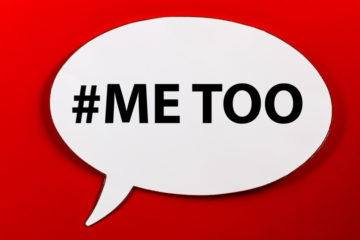Sex, Money & Power: Revisioning The Therapeutic Narrative
 Power dynamics involving sexual and financial abuse often hidden behind closed doors, became public outrage when sexual harassment and abuse allegations surfaced in late 2017. A series of articles and investigative reporting resulted in noted industry titans being exposed for their long standing exploitation. Their predatory exploits moved from backroom settlements to front page fodder and went on to spawn movements and organized campaigns notably the #MeToo and #TimesUp movements.
Power dynamics involving sexual and financial abuse often hidden behind closed doors, became public outrage when sexual harassment and abuse allegations surfaced in late 2017. A series of articles and investigative reporting resulted in noted industry titans being exposed for their long standing exploitation. Their predatory exploits moved from backroom settlements to front page fodder and went on to spawn movements and organized campaigns notably the #MeToo and #TimesUp movements.
The public were given a lens into Hollywood’s worst kept secret, that being; if you the vulnerable want to succeed here, you’ll have to erase your identity, check your agency and choice at the door in the service of achieving success, and collude with the system that will keep the charade going for decades. Many other titans of their respective professional kingdoms were toppled in the months that followed but Wall Street appeared to remain immune from the defenestration.
The #MeToo movement captured the zeitgeist of the silenced and gave victims a voice and a platform to share their emotional, physical and sexual abuses. Therapists navigate these volatile waters in couples and individual therapy and are trained to confront abuse of all types in hopes of shifting a victim into action potential and toward self-empowerment while reducing the emotional or psychological drivers of the abuse. What underlies this power dynamic in relationship has much to do with how each person sees themselves in relation to the other.
The #MeToo movement captured the zeitgeist of the silenced and gave victims a voice and a platform to share their emotional, physical and sexual abuses.
Power in Couples
These news worthy headlines made their way into people’s lives quietly and ferociously as men (yes men) and women began to put voice to their forgotten or self-denied pain. Slowly, the conversation sprung up in therapy as couples and individuals expressed their own version of their exploitation and the ways in which it has impacted their marital lives.
Sexual addiction and betrayal leave wounds that never disappear, rather the wounds soften over time when there is authentic healing for the addict and the partner alike. It is not the responsibility of the partner to give a full disclosure, make amends and consistently work to regain the partners’ trust. In their addiction, the addict held furtive power in the relationship. Furtive because it is easier to steal power when the loving and unknowing partners readily and freely trusts. Many partners have told me that they feel so stupid or naive for having not seen the signs of the betrayal. To their painful admission I respond by saying, “Being a trusting, loving and compassionate partner is not the shame here. Having that trust, love and compassion exploited is.”
Holding the addict’s shame in lieu of holding the addict accountable is, unfortunately, what happens with many betrayed partners.
Partners have told me they tried to connect with their addict partner by being more sexual, more forgiving, more acquiescent, more “anything,” in hopes of appealing to his (or her) loved one. By keeping secrets, hiding expenses, lying to thwart the partners’ attempts to know the truth and creating a web of lies and deceptions, the addict believed they could keep their addict world afloat. It is not shameful to trust! In, For Love and Money: Exploring Sexual & Financial Betrayal in Relationship, I wrote, “Holding the addict’s shame in lieu of holding the addict accountable is, unfortunately, what happens with many betrayed partners.” Confronting the false belief that the victim is to be blamed undermines the very core of one’s authentic self and one’s authentic power. False power that exploits the vulnerable will ultimately topple because it is built on a charade and web of lies. The power that comes from realizing there is no shame in being a trusting, caring and loving person is essential to healing the wounds of betrayal.
